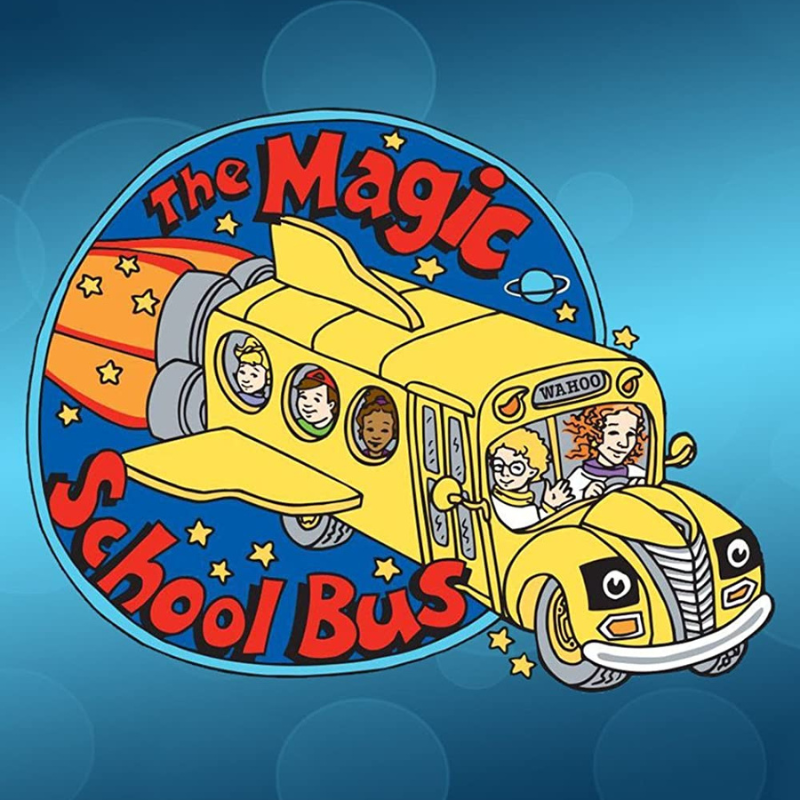The Best TV Shows To Help Your Children Learn English
Author: Nicole Sage
Date: 12/05/2023

In today’s fast-paced world, television has become an integral part of our lives, with children increasingly exposed to screens from an early age.
While many parents are rightfully concerned about excessive screen time, there are numerous educational TV shows that can be valuable tools for teaching children important skills, including language acquisition.
English, as one of the most widely spoken languages worldwide, is an essential skill for children to develop, and carefully curated TV programmes can help to foster and support learning the English language.
Join us as we share some of the best TV shows to help your children learn English, while keeping them entertained and engaged too!
The Best TV Shows To Help Your Children Learn English
Peppa Pig
Peppa Pig, an animated series beloved by children worldwide, follows the adorable adventures of Peppa, a young pig, and her family and friends.
This show is an excellent choice for young learners due to its simple and easy-to-understand dialogue.
The characters speak slowly and clearly, making it ideal for children who are just starting to learn English.
Additionally, each episode focuses on specific themes, such as colours, numbers, and everyday activities, providing valuable vocabulary and context for children to absorb.

Sesame Street
A timeless classic, Sesame Street has been entertaining and educating children for generations.
This iconic show combines animation, live-action, and puppetry to create an engaging learning experience.
The diverse cast of characters, including Elmo, Big Bird, and Cookie Monster, introduces children to a range of accents and dialects, helping them develop an ear for different English pronunciations.
Sesame Street covers a wide range of educational topics, from letters and numbers to social skills, making it a comprehensive resource for young learners.
Dora the Explorer
Dora the Explorer is an interactive animated series that follows a young girl named Dora and her monkey friend, Boots, on various adventures.
The show encourages children to participate by asking questions and solving problems throughout the episodes.
This interactive approach not only keeps kids engaged but also allows them to practice speaking and responding in English.
Dora the Explorer also introduces Spanish words and phrases, promoting multicultural awareness and language exposure.
Blue’s Clues
An innovative educational series that combines live-action and animation to teach children problem-solving and critical thinking skills. Each episode presents a mystery that the main character, Steve (later replaced by Joe), and the audience must solve with the help of Blue, a blue-spotted puppy.
The show’s repetitive nature and use of visual cues assist young learners in understanding and anticipating spoken language.
Blue’s Clues also features a “Mail Time” segment, where children’s letters are read aloud, fostering language expression and communication.
Meridian English - more than just English lessons.
WordWorld
WordWorld is a unique show where everything, from characters to objects, is built from the letters that spell their names.
This innovative concept not only makes learning words and spelling enjoyable but also reinforces the connection between letters and their sounds.
The shows colourful and playful animation captivates children while introducing them to new vocabulary in a meaningful context.
WordWorld is particularly beneficial for early readers and aspiring writers, as it emphasizes literacy skills alongside language development.
Super Why!
Super Why! is an animated series that follows a group of superhero characters with literacy-based powers.
Together, they explore classic stories and fairy tales, using their reading abilities to solve problems and save the day.
The show introduces children to the magic of reading while promoting letter recognition, phonics, and comprehension skills.
The interactive nature of Super Why! encourages children to actively participate in the storytelling process, fostering their language and listening abilities.
Pocoyo
This is a delightful and visually appealing animated series that features a young boy named Pocoyo and his animal friends. The show’s simple language and clear enunciation are perfect for young learners.
Each episode centres around everyday experiences and adventures, allowing children to absorb practical vocabulary that they can use in their daily lives.
The colourful and playful animation style makes Pocoyo a favourite among children while providing valuable language learning opportunities.
The Magic School Bus
The Magic School Bus is an animated series that takes children on exciting science adventures with their eccentric teacher, Ms. Frizzle.
The show not only sparks children’s curiosity about the world around them but also enhances their English language skills.
Each episode explores scientific concepts and vocabulary related to biology, astronomy, physics, and more.
The engaging narratives and interactive elements make learning fun while exposing children to new terminology and complex ideas.

Curious George
Curious George is a lovable animated series based on the classic children’s book character. The show follows the curious little monkey as he explores the world and learns about new things.
The dialogue is simple and easy to follow, making it ideal for young learners. Children will delight in George’s adventures while picking up new words and phrases in English.
Word Party
Finally, we have Word Party! A Netflix original series designed specifically for preschoolers. The show features adorable baby animals as they play and learn together.
Each episode focuses on a particular word or concept, and the characters engage in fun activities to reinforce the learning.
The use of repetition and interactive elements makes Word Party highly engaging for young viewers, helping them retain new English words and phrases effectively.
Choosing the right TV shows for your children can have a significant impact on their language learning journey. The shows mentioned in this blog not only entertain, but also provide valuable opportunities for children to improve their English language skills. As parents, it is essential to actively engage with your children during their TV time, reinforcing the concepts they learn and encouraging them to practice their language skills in real-life situations.
Looking to take your young learners’ English language to the next level? Our online English classes for children aged 5-15 will take them from beginner to confident English speaker in a supportive group setting, book your course today.

















